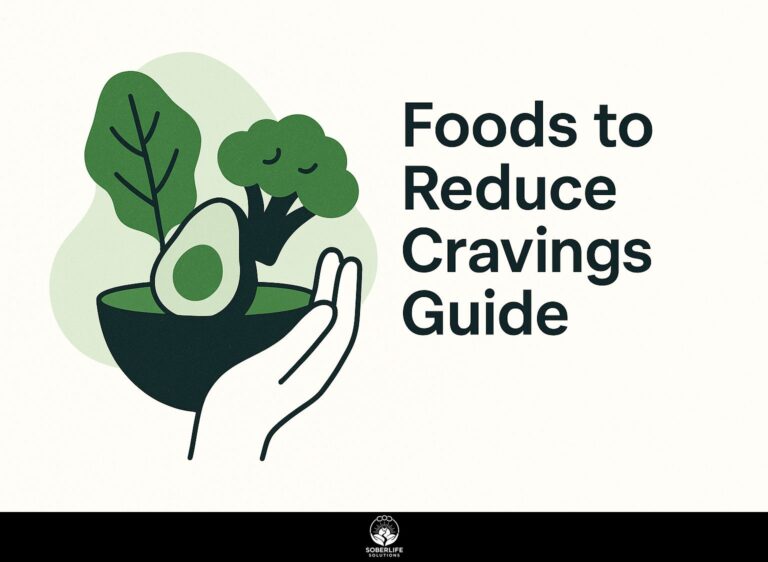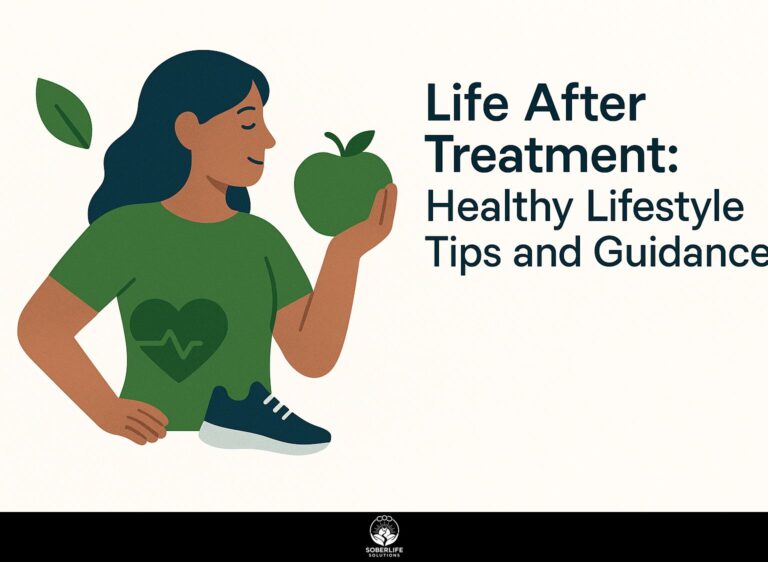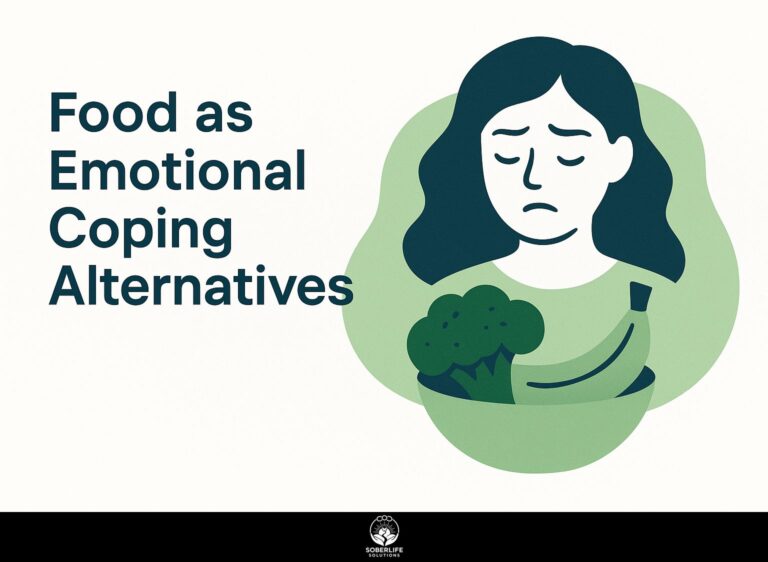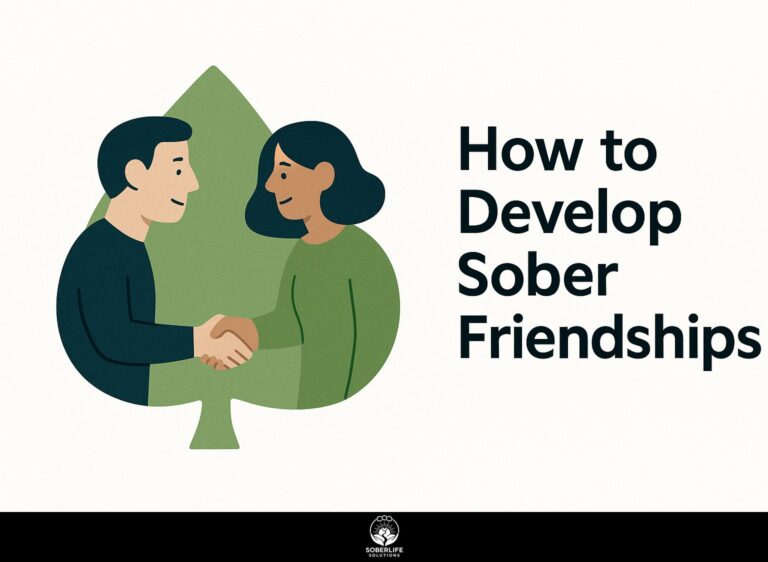Staying Sober: Techniques for Long-Term Recovery
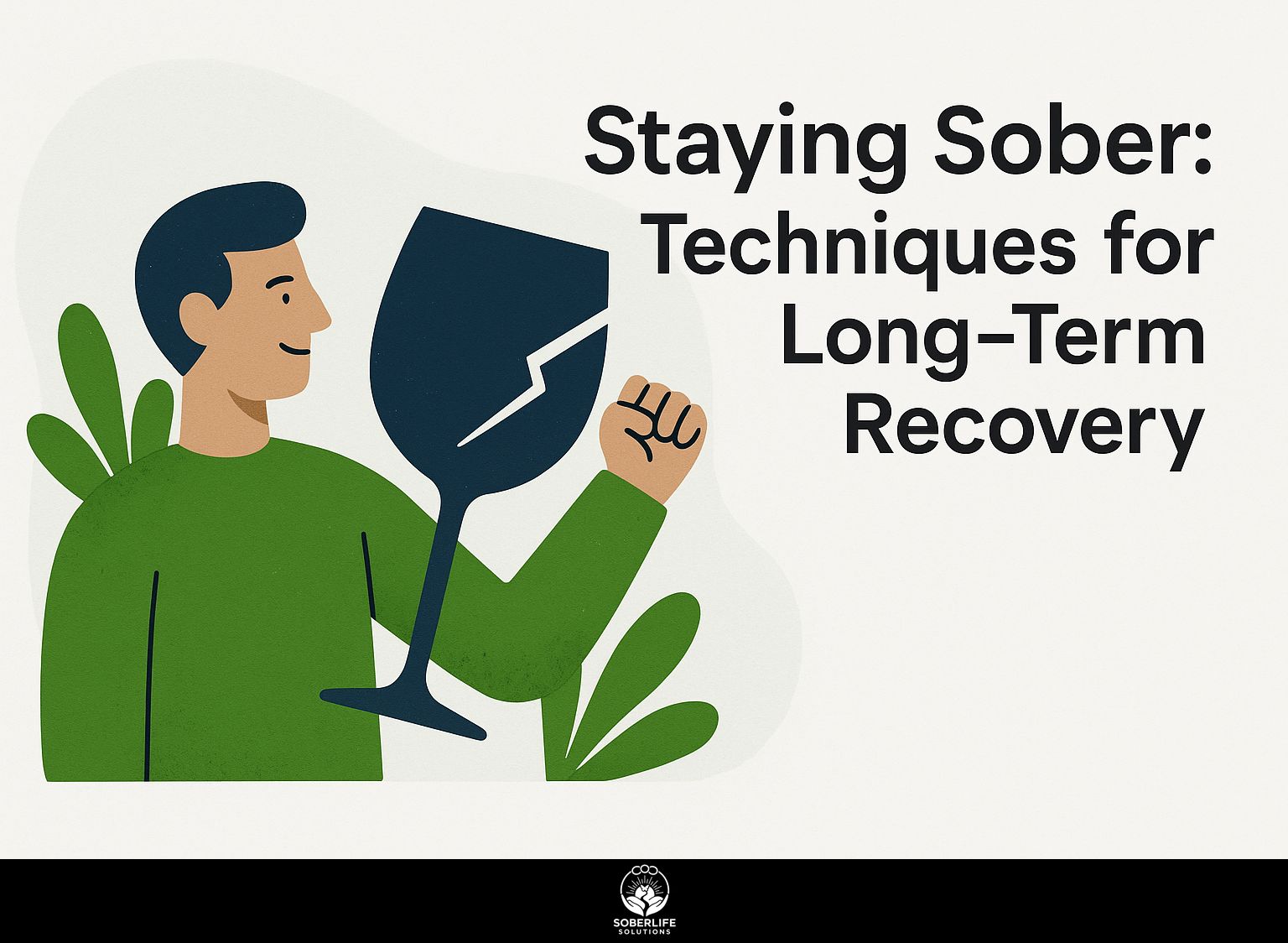
Staying sober is an important part of recovering from addiction, and it involves using practical ways to deal with challenges and having reliable support from others. Facilities like Priory Hospital Woking and groups such as Alcoholics Anonymous and Narcotics Anonymous provide important help. This article looks at methods for avoiding relapse, supporting you in creating a lasting, alcohol-free way of living. Learn to recognize what sets off your cravings, create healthy substitutes, and build a helpful group of friends for lasting success in your recovery path.
Key Takeaways:
Understanding Addiction
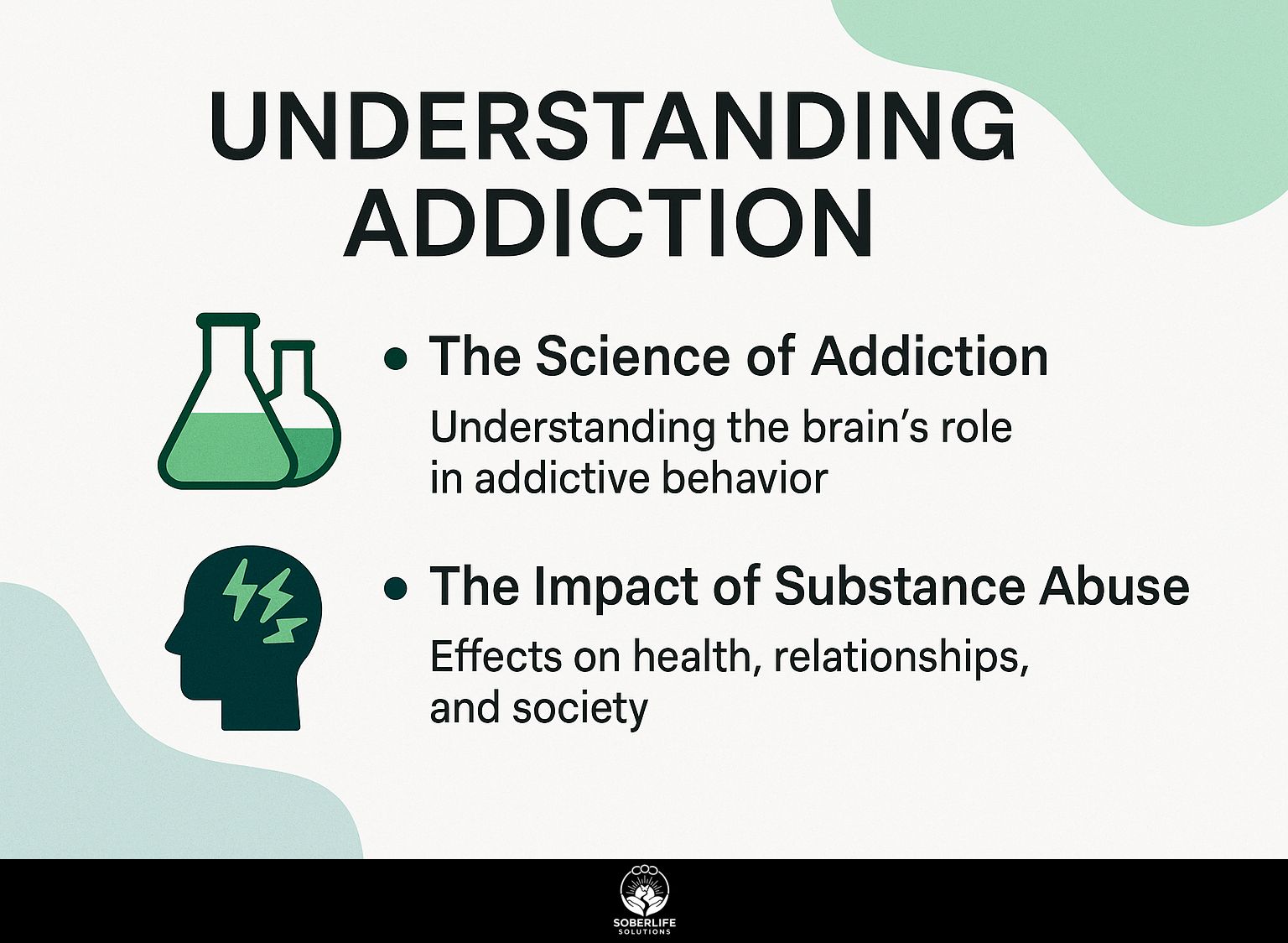
Knowing about addiction is important for recovery, as it involves both the physical and mental factors that lead to substance use problems. To deepen your understanding, consider exploring expert insights on using phone apps to manage cravings, which can be a vital tool in addressing mental aspects of addiction.
The Science of Addiction
The neurobiology of addiction reveals that substances significantly alter brain chemistry, particularly affecting dopamine pathways which are critical to reward and pleasure.
Dopamine, a brain chemical linked to pleasure and reward, is important in addiction. Substances such as alcohol and opioids raise dopamine levels artificially, leading to feelings of intense joy.
Over time, the brain produces less dopamine naturally, leading to a reliance on these substances to experience pleasure. Research shows that people who use opioids for a long time may experience a 40-50% decrease in dopamine receptors, making everyday activities feel less enjoyable.
This takeover of the brain’s reward system leads to addiction, highlighting the significant changes in the brain caused by substance use. According to The Lancet’s analysis of neurocircuitry, these alterations have profound implications for understanding addiction’s complexity and treatment.
The Impact of Substance Abuse
Substance abuse can deteriorate mental health, leading to disorders such as anxiety and depression, which affect over 50% of individuals with addiction issues.
The interplay between addiction and mental health disorders often creates a vicious cycle. For example, an individual with depression may misuse alcohol to self-medicate, only to find that their depressive symptoms worsen with increased consumption.
Statistics reveal that nearly 45% of people with substance use disorders also experience a co-occurring mental health issue. According to SAMHSA, effective treatment should handle both aspects at the same time, using methods like combined therapy or treatment with medication.
This complete approach can greatly improve recovery results for individuals dealing with these connected issues. In fact, exploring how sobriety improves mental health reveals significant benefits that underscore the importance of addressing both addiction and mental health simultaneously.
Importance of a Support System
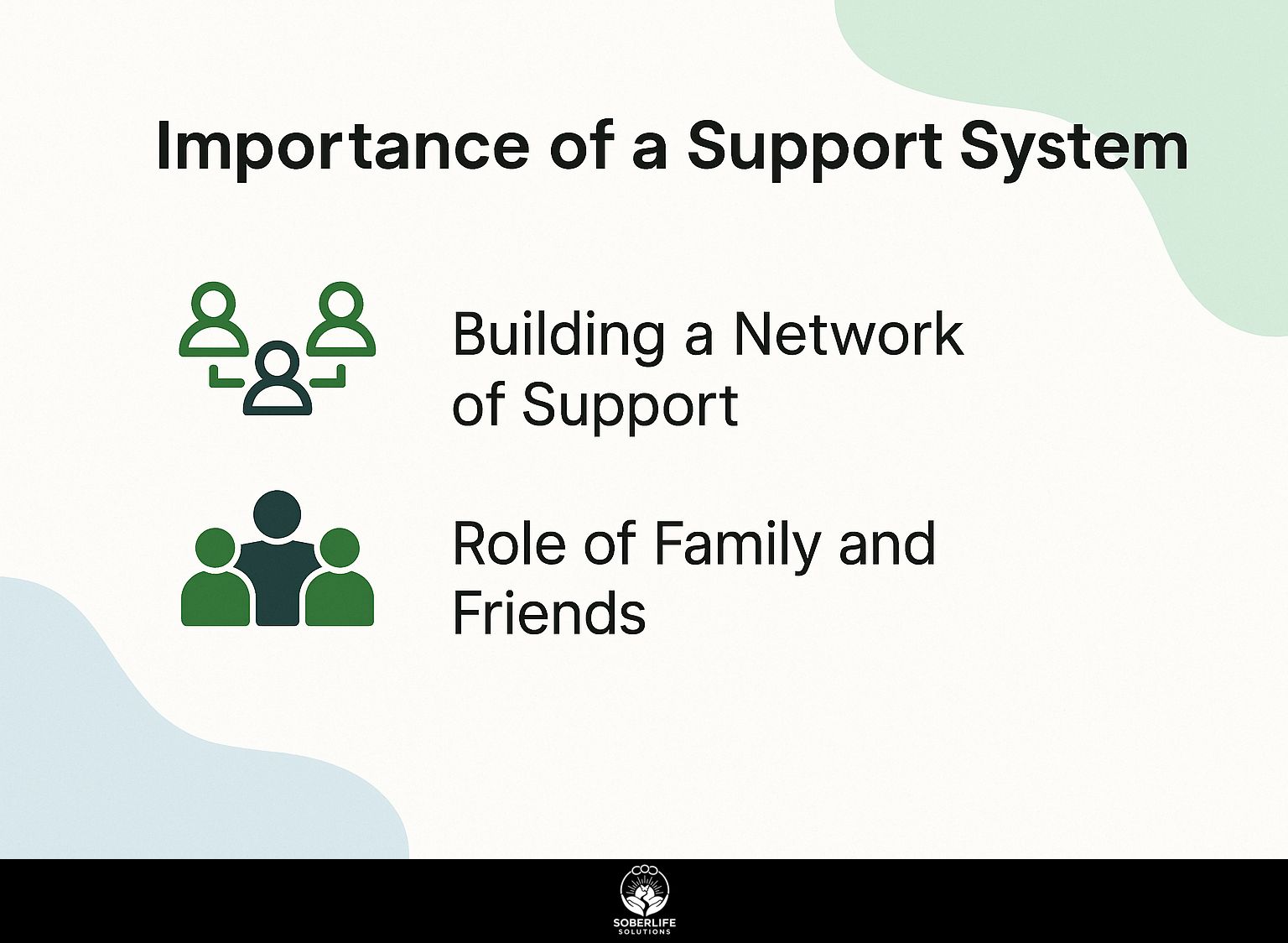
Having a strong support network greatly helps people get better by offering emotional support and practical help throughout their recovery process (our key strategies for building a support network can guide you in establishing and strengthening these vital connections).
Building a Network of Support
Establishing a network of support involves connecting with peers and groups that understand the challenges of addiction recovery, such as Alcoholics Anonymous and Narcotics Anonymous.
To strengthen your recovery network, consider joining local support meetings, which can be found on the official AA or NA websites.
Participate in online forums like Reddit’s /r/stopdrinking, where you can share your experiences and learn from others. Attend sober social events to form meaningful friendships with like-minded individuals.
Research shows that community support can significantly reduce relapse rates; for example, participants in structured support groups report a 50% lower chance of relapse compared to those who go it alone. This is further supported by findings on ScienceDirect, which examines the impact of social support in online communities.
Role of Family and Friends
Family and friends are important in recovery because they give emotional support, listen, and help when needed.
Studies show that family therapy can greatly improve recovery results, increasing success rates by almost 30%. By creating a space where trust and open dialogue are encouraged, families can help people establish healthy limits and create useful ways to manage stress.
For example, regular family meetings can help identify triggers and discuss ways to address them collaboratively. Tools like communication skills workshops or online resources can further prepare families for these discussions.
Involving family members gives extra help and builds a stronger support system, which is important for long-term recovery.
Developing Coping Strategies
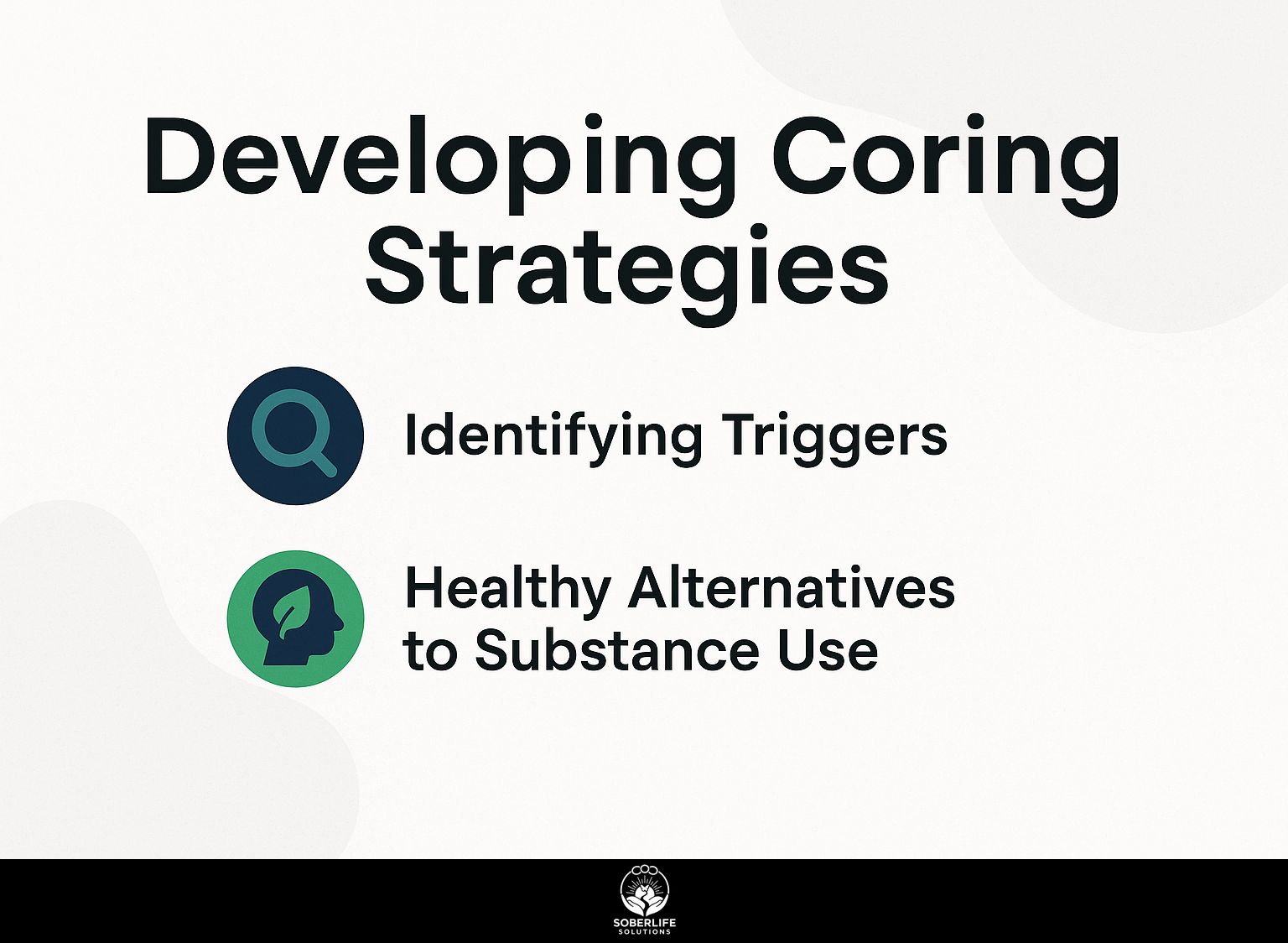
Creating useful ways to handle cravings is important for staying on track and not falling back into old habits during recovery.
Identifying Triggers
Knowing why addiction happens is important for making a recovery plan that fits the person, helping to lower the chance of falling back into old habits.
- Start by keeping a daily journal where you record your emotional states and cravings. This practice helps you pinpoint patterns over time.
- Complement this with mindfulness techniques, such as meditation or deep-breathing exercises, which train you to observe your emotional responses without judgment.
- Consider attending workshops or support groups that focus on trigger identification, allowing you to share experiences and learn from others.
- People at these workshops often find unexpected reasons that help them make progress in their recovery process.
Healthy Alternatives to Substance Use
Healthier options instead of substance use can improve coping skills and support emotional well-being, including activities like exercise, yoga, and mindfulness practices.
Incorporating these alternatives into your daily routine can significantly improve your mental health. For example, doing regular physical activity for at least 30 minutes each day can improve your mood due to endorphin release and help you create a healthier habit.
Yoga focuses on breathing and relaxation methods that help reduce stress and encourage mindfulness. Consider joining local community centers or online platforms that offer free or low-cost classes to maintain consistency.
In the end, using these methods can help build strong and lasting emotional strength.
Participating in Recovery Programs
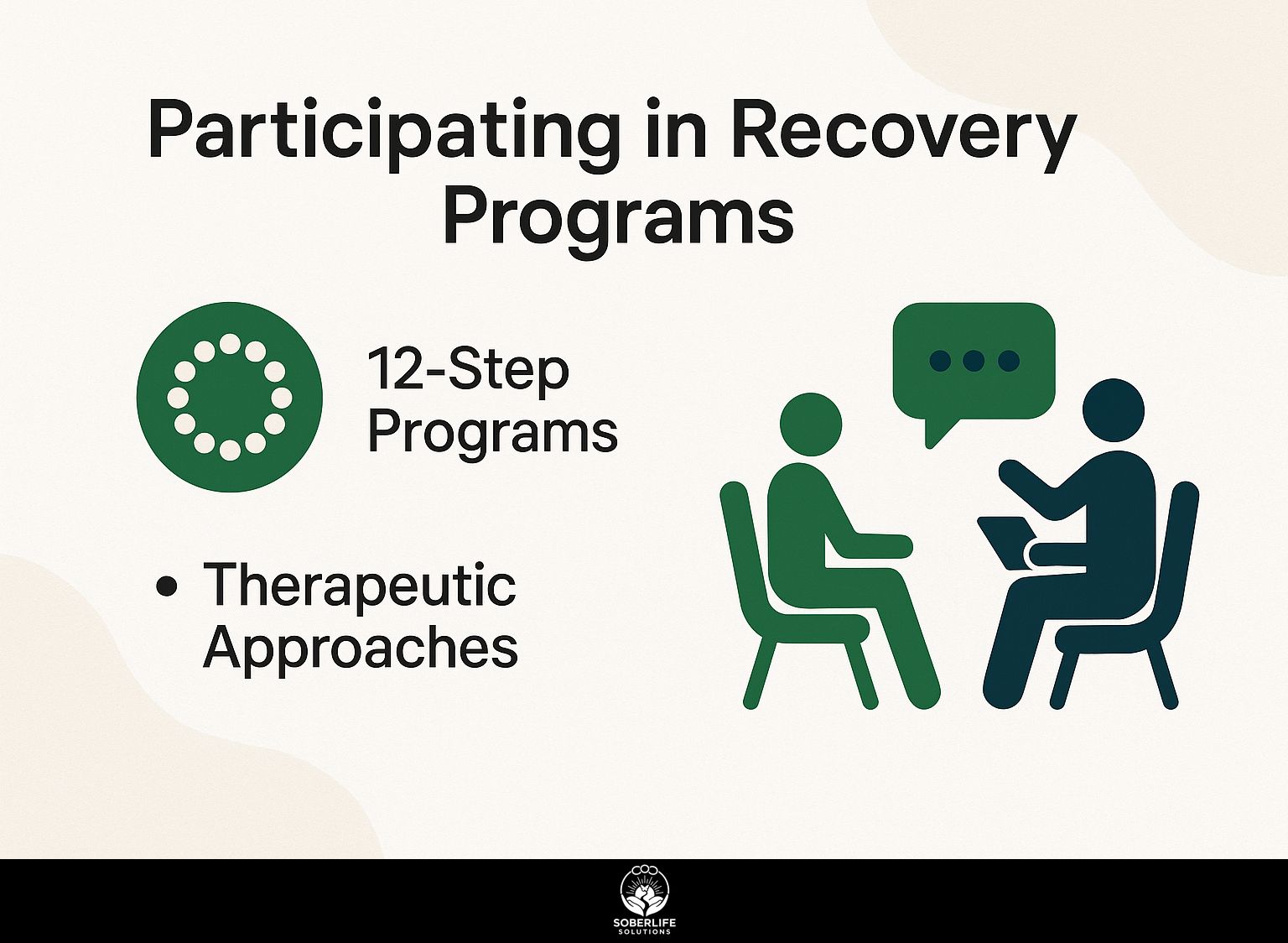
Joining recovery programs can offer organized help and important tools needed to stay sober. These programs often include various supportive practices such as sober support systems, which are crucial for maintaining sobriety. Learn more about the benefits of these support systems in the recovery journey.
12-Step Programs
- 12-Step Programs like Alcoholics Anonymous offer a guide for people who want to stay sober, using shared stories and group help.
- These programs focus on building relationships and responsibility, which are important for staying in recovery over time. Participants often feel enableed when they share their experiences and problems, creating a sense of community.
- Research indicates that those actively engaged in 12-Step programs have a 50% higher chance of maintaining sobriety after one year compared to non-participants. This statistic highlights the program’s effectiveness in creating a supportive environment.
- Regular group meetings allow members to set goals, track progress, and celebrate milestones, reinforcing their commitment to sobriety.
Therapeutic Approaches
Therapeutic approaches, including individual counseling and family therapy, are instrumental in addressing the psychological aspects of addiction.
Two effective modalities include Cognitive Behavioral Therapy (CBT) and Motivational Interviewing (MI).
CBT helps individuals identify and restructure negative thought patterns, leading to a reported 60% improvement in long-term sobriety when combined with therapeutic support.
Conversely, MI increases motivation and helps people take an active role in their recovery process. This method is especially helpful at the beginning of treatment, encouraging dedication to change.
These treatments usually require weekly meetings, offering continuous support and changes to strategies to fit personal needs.
Maintaining a Healthy Lifestyle
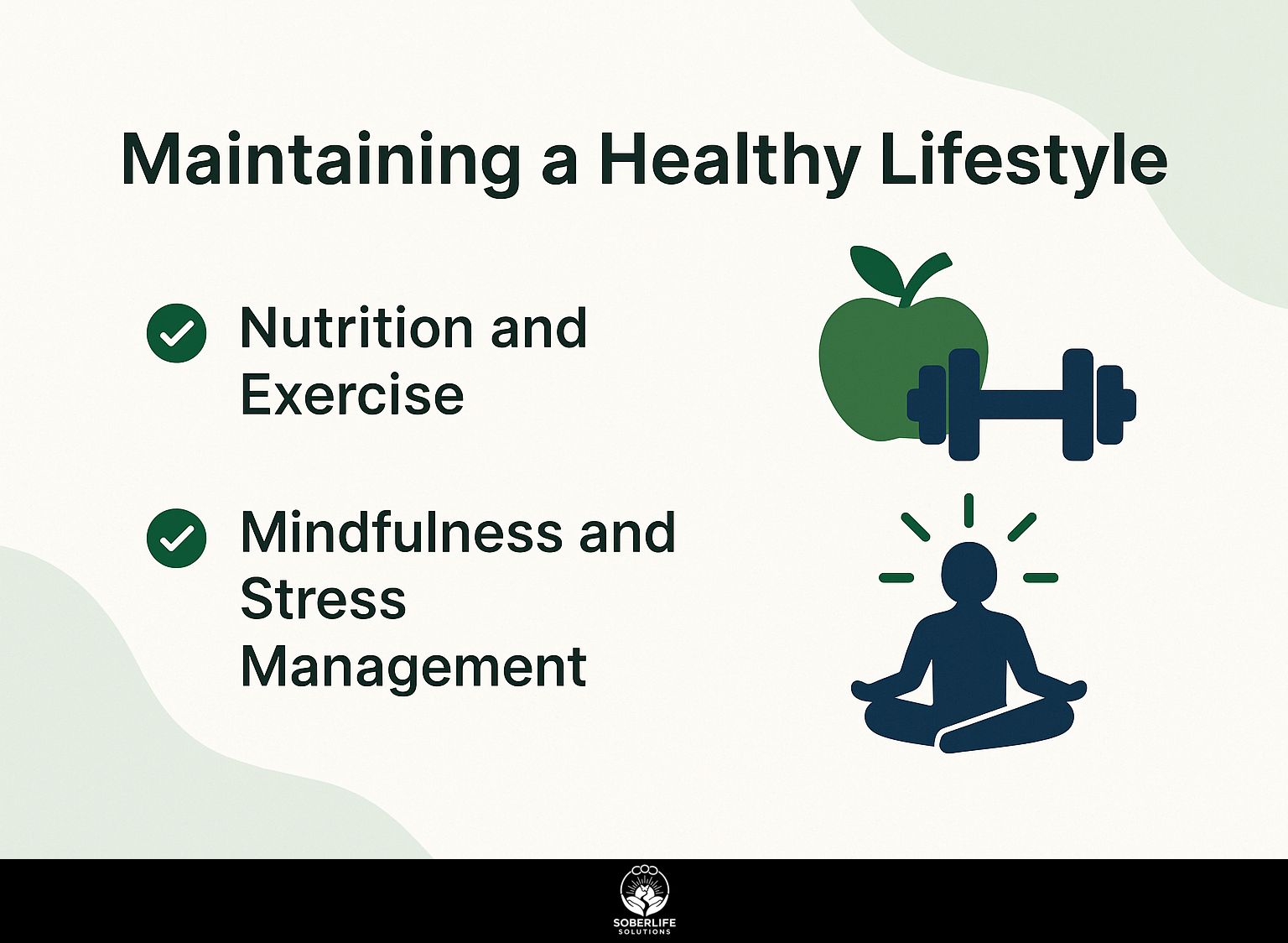
Sticking to a healthy lifestyle is important for people in recovery, including eating well, exercising, and managing stress. For an extensive analysis of this trend, our comprehensive study on fitness, nutrition, and sleep in addiction recovery highlights essential strategies for maintaining balance.
Nutrition and Exercise
A balanced diet and regular exercise help restore physical health and improve mental clarity, both essential components of sober living.
Adopting a Mediterranean diet can significantly aid recovery; this approach emphasizes whole grains, fresh fruits, vegetables, lean proteins, and healthy fats.
For instance, including fatty fish like salmon twice a week provides omega-3 fatty acids, which can increase serotonin levels, improving mood. Following this diet with activities like running or swimming improves physical fitness and makes you feel happier due to endorphins.
Research indicates that people who stick to a healthy diet have 20% fewer cravings and 30% more energy, showing the strong link between diet, physical activity, and recovery.
Mindfulness and Stress Management
Adding mindfulness exercises to your daily schedule can greatly help with stress management and improve emotional health during recovery.
To effectively integrate mindfulness, start with a daily 10-20 minute meditation session using apps like Headspace or Calm, which guide you through various techniques.
Complement this with deep-breathing exercises, such as the 4-7-8 method, where you inhale for 4 seconds, hold for 7, and exhale for 8.
Research shows these approaches can lower stress by 30% and greatly improve emotional well-being, providing helpful support in your recovery.
It’s helpful to practice at the same time each day.
Setting Goals for the Future
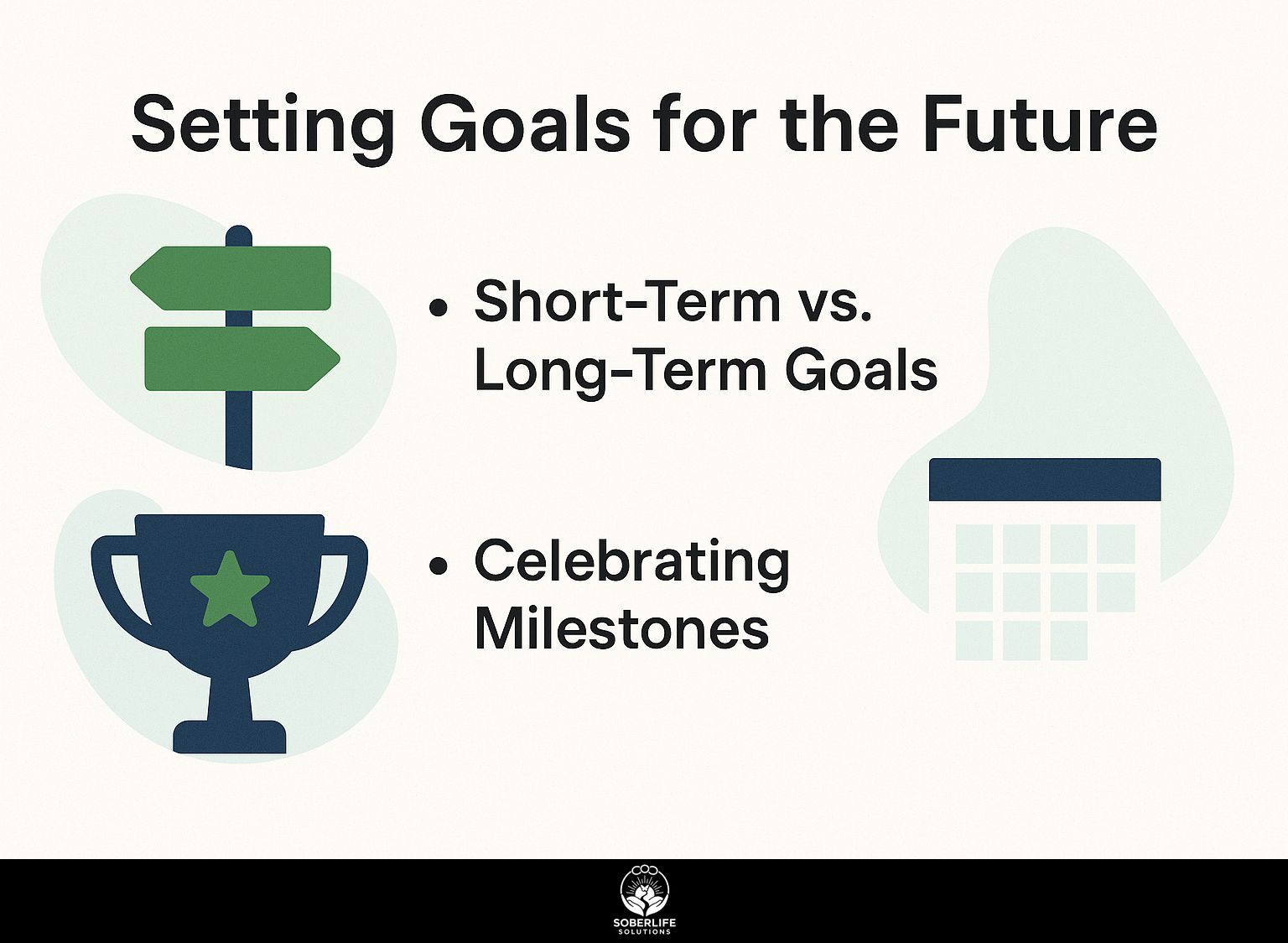
Setting realistic goals is important for ongoing recovery, helping people maintain focus and motivation during their progress.
Short-Term vs. Long-Term Goals
Balancing short-term and long-term goals enables individuals to maintain momentum while progressively working towards larger recovery milestones.
To create effective short-term goals, aim for specific and measurable targets, such as attending three support meetings this month.
For long-term goals, consider aiming to complete a treatment program within a year. For instance, individuals may set up a goal tracking system using a journal or mobile apps like Asana, where they can log their progress.
Effective plans often include dividing big goals into smaller, doable tasks and regularly acknowledging each small success to maintain drive and a feeling of success.
Celebrating Milestones
Recognizing recovery milestones highlights progress and builds dedication to staying on the path of recovery.
Practical ways to celebrate these milestones include hosting sober gatherings with friends to create a supportive environment, or treating yourself to a day trip as a personal reward.
One person talked about how a picnic with friends marked their six months of sobriety, reinforcing their progress and increasing their motivation.
Others recommend non-material gifts like a spa day or a new hobby class, which serve to remind individuals of their growth.
These celebrations bring happiness and build self-confidence by acknowledging the work done in the recovery process.
Frequently Asked Questions
What are some techniques for staying sober in the long-term?
Some techniques for staying sober in the long-term include establishing a strong support system, practicing mindfulness and self-care, attending regular therapy or support group meetings, and setting and achieving realistic goals for yourself.
What role does a support system play in long-term recovery?
A support system can offer motivation, responsibility, and empathy to people in recovery. It can also offer a sense of community and connection, which is essential for long-term sobriety.
How can mindfulness help in maintaining long-term sobriety?
Mindfulness involves being present in the moment and aware of your thoughts and feelings. It can help those in recovery to recognize triggers and cravings, and develop healthy coping mechanisms to avoid relapse.
Is therapy necessary for long-term recovery?
Therapy might not be needed by every person, but it can aid in recovering over time. It provides a safe and non-judgmental space to process emotions, identify patterns, and develop coping strategies.
What are some effective ways to avoid relapse in the long-term?
Along with getting support and taking care of yourself, you can prevent relapse by discovering new hobbies and interests, steering clear of triggers and risky situations, and being truthful with yourself and others about your sobriety goals.
How can setting and achieving goals aid in long-term recovery?
Setting and achieving goals can provide a sense of purpose and direction in recovery. They can also increase self-confidence and self-worth, and remind individuals of their achievements in sobriety.

